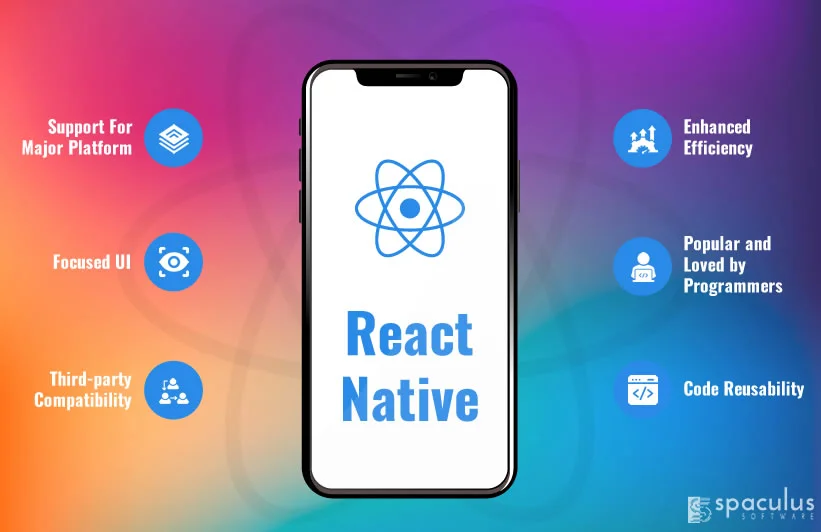
Choosing the right mobile app technology is an important decision for every CTO. It can affect how much the project costs, how easy it is to develop and maintain, and how complex the coding will be. Among the popular cross-platform technologies, React Native stands out because it helps build high-quality apps for both iOS and Android more quickly.
React Native, created by Facebook, is an open-source framework that uses JavaScript and JSX to make functional mobile apps. It requires fewer resources compared to native iOS and Android development (which use Java and Objective-C), while still delivering a great user experience.
Here, we will look at the main advantages and disadvantages of React Native to help determine if it’s the right choice for building apps that work on both platforms.
React Native allows developers to see changes immediately with a feature called hot reloading. This means when developers make changes to the code, they can see the results instantly without having to restart the app. It speeds up the process and makes it easier to test changes, saving time and effort.
React Native uses native components, which means the apps feel very close to native iOS or Android apps in terms of performance and design. It communicates directly with the platform’s native APIs, which helps boost performance and delivers a smooth experience to users.
React Native comes with pre-built components that developers can use instead of writing everything from scratch. These ready-made elements help speed up development, especially when creating simple features.
Because it’s a cross-platform framework, developers can use the same code for both iOS and Android, reducing the need to write separate code for each platform. This can save a lot of money and time, especially for businesses on a tight budget. It also means companies don’t need to hire separate developers for each platform.
Since React Native is open-source, it has a large and active community of developers. If you face issues while developing, there is a good chance that someone in the community has already found a solution. This support makes it easier to resolve problems and improve your app.
Releasing updates to apps built with React Native is quicker and simpler than with traditional native apps. With tools like CodePush, updates can be pushed directly to the app without needing approval from the App Store. This helps release bug fixes and improvements faster.
React Native ensures apps remain stable and functional due to its strong data handling and state management. Major companies like Meta (formerly Facebook), Instagram, Shopify, and Tesla trust React Native for their apps, showing its reliability and performance.
React Native is developed by Meta (Facebook). Some worry that if Facebook ever stops supporting React Native, it could cause problems for businesses that rely on it. However, considering its widespread use, it seems unlikely that Facebook will discontinue support anytime soon.
Compared to native platforms like iOS and Android, React Native still has fewer third-party components and libraries. This can sometimes make it harder to find ready-made solutions for specific features. However, this is improving as the community grows.
React Native uses JavaScript, and developers who are not familiar with it may find it difficult to learn. It takes some time and practice to master the framework, especially for those new to React or JavaScript. Other cross-platform frameworks may be easier to pick up for beginners.
Since React Native apps are based on JavaScript, it can raise security concerns for apps that require high levels of protection, like banking or finance apps. Developers need to take extra precautions to secure their code and protect sensitive data.
Considering the pros and cons, React Native remains a strong choice for developing apps that need to work on both iOS and Android platforms. It’s fast, cost-effective, and supported by a growing community. Although it has a few downsides, like a steep learning curve and some security concerns, its benefits often outweigh these issues.
React Native continues to improve, and we can expect it to become even more powerful in the future. For now, it’s a great option for businesses looking to build high-quality, cross-platform mobile apps without breaking the bank.
App Development